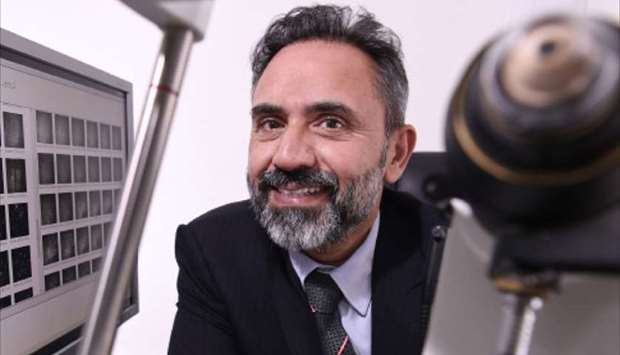Professor of Medicine Dr Rayaz Malik, a Weill Cornell Medicine – Qatar (WCM-Q) researcher has been listed among the UK’s most influential diabetes researchers and also has won Camillo Golgi Prize.
Dr Malik was named UK’s second most influential clinical researcher in a list of ‘Leaders in Diabetes Complications’ compiled by Expertscape, the world’s leading index of academic achievement and expertise in healthcare.
Expertscape ranks the performance of researchers impartially, using a series of objective metrics to judge the number and quality of research papers and the impact factor of the journal they have published in over the last ten years.
Although Dr Malik left the UK to join WCM-Q in 2014, he still holds an honorary professorship at his previous institution, the University of Manchester, hence his inclusion in the UK index.
Dr Malik also learnt that he had been awarded the prestigious Camillo Golgi Prize for outstanding contributions in the field of the histopathology, pathogenesis, prevention and treatment of the complications of diabetes mellitus.
The prize, awarded by the European Association for the Study of Diabetes (EASD), is named after Italian biologist Camillo Golgi who won the Nobel Prize in 1906 for his studies on the nervous system and kidney physiology.
The prize recognises investigators who have published research papers in internationally recognised scientific journals over the last five years which demonstrate continuing activity, originality and excellence in the field.
Dr Malik is the first recipient in the history of the Camillo Golgi Prize to be based outside Europe.
As the winner of the award, Dr Malik has been accorded the privilege of delivering the Camillo Golgi Prize lecture at the EASD Annual Meeting in September 2019 in Barcelona.
Dr Malik began his research into the pathophysiology and treatment of diabetic neuropathy whilst he was still a medical student in Aberdeen, Scotland.
As a medical registrar and subsequent Professor of Medicine in Manchester, he pioneered the technique of ‘Corneal Confocal Microscopy’ (CCM).
CCM enables real-time imaging of the corneal nerve fibres and identifies nerve damage in a growing list of peripheral and central neurodegenerative conditions including diabetic neuropathy, hereditary neuropathies, Parkinson’s disease, multiple sclerosis, dementia and autism.
Dr Malik said: “To be presented with awards for doing something I love and that will help my patients now and in the future is a great honour and privilege. It is also extremely gratifying to known that our hard work is considered to be cutting-edge and has been internationally acknowledged by both Expertscape and the European Association for the Study of Diabetes.”

Dr Rayaz Malik
